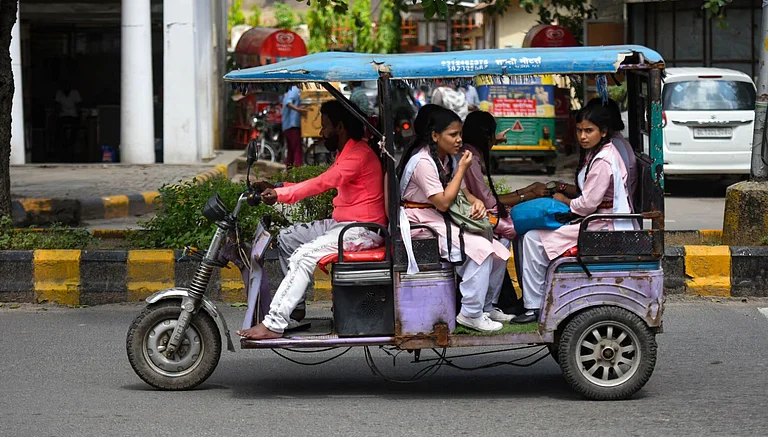Every year, there appears to be a new generation of young women just out of school that comes seeking admission to Lady Shriram College. I am struck by how differently wired they are from the ones that arrived just a few batches earlier. Every five years is a new generation. I marvel at their ability to talk about themselves, the aplomb with which they seize the moment with both hands, distributing CVs and brief write-ups about themselves, and commanding attention with their PowerPoint presentations with a confidence and ease that at least at the most visible level seem beyond their years.
As an educator, I find the pace at which this generation functions both invigorating and bewildering. These students want no handholding and have better access to information than their predecessors ever imagined they could. But there is a challenge here for us. How do we reap this youth dividend and turn this bundle of enormous energy into an asset for society at large? Their expectations of us have changed and their thresholds of aspirations are higher than what they were for us. We, their teachers, are no longer the repository of all relevant wisdom and experience.
My students are not a security-seeking group of women who look for comfort in the known and the conventional. About thirty per cent of our graduates are keen to carve a niche for themselves in academics, but many others are driven by aspirations that seek a different mobility. In their pursuit of success, they have a commendable capacity for risk-taking and hard work. By that I mean they hold a view that they are the subjects of history and not objects at the hands of Destiny. They hold a view that if their aspirations are not met, the system needs to change. This could translate into cracking the system or leveraging it to their advantage. Issues of conflict of interest sometimes take a backseat.
In many ways, a largely celebrity-driven consciousness consumes most young people today. Women of my generation had role models who were real. Today’s icons are constructs largely of the media—one can call it the Indian Idol syndrome. Television has brought to their doorstep live images of what the ‘good life’ looks like—with all the trappings of material comfort. So, unlike their parents, they have visual reference points and have been weaned on a discourse of deliverables. But the soundbite culture has also somewhat undermined the importance of nuance, which is so imperative in any serious democratic discourse.
This generation is street-smart. It is willing to experiment with different options and much more innovative than its predecessors were. It has broadened its choices, but I am not entirely sure that its motives are necessarily altruistic. Also, this is a generation that is less tolerant of conventional hierarchies, less accepting of received wisdom, either of parents or teachers. It is more amenable to appreciating hierarchies that are pegged to material success. The young today have a strong sense of self and self-abnegation is not their chosen path. They expect immediate recognition. At the same time, they are also more demanding of themselves. They work hard and they work smart. They are certainly more sensitive to inequities of caste and gender, but not necessarily to class inequality. For many of them, the ultimate political protest has become the torchlight procession before television cameras for a dharna that carries with it the promise of a spectacle. A fast like that of Irom Sharmila’s is less likely to resonate with them.
Fusion is the credo they live by—reflected in food, clothes, the arts, music and design. They are willing to experiment and are less afraid of failure. They will protest against a dress code or uniform at school or college but will have few qualms about getting into a formal jacket-and-tie gear for interviews in corporate houses. This is a generation of women who might not always be open to putting their own certitudes to scrutiny, yet is equally willing to engage with possibilities rather than limits with an amazing ability to multi-task. Willing to push the envelope in terms of their rights and access to decision-making and power, these young women have had some notable success in cracking the glass ceiling.
Looking at their canvas of aspirations, I am also acutely aware that we in the teaching profession must no longer see ourselves as mere purveyors of information or repositories of wisdom but those who can walk together with them, in a journey of discovery, growth and mutual respect.
As told to Anuradha Raman
(Dr Gopinath is principal, Lady Shriram College, Delhi)






















